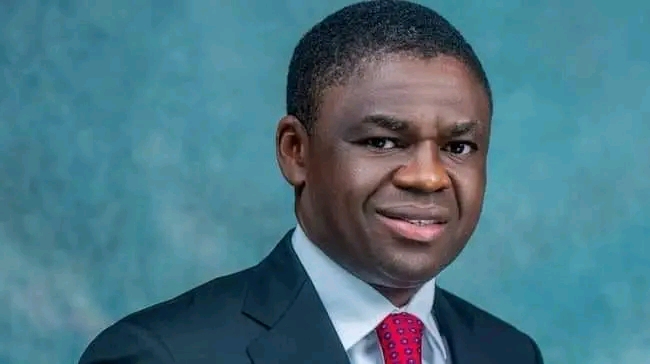By Rosemary Ugiomoh
Phillip Shaibu, the Director General and Chief Executive Officer of the National Institute for Sports (NIS), has been a driving force in Nigerian sports development, and his latest vision is to revolutionize the country’s sports landscape.
During his tenure as Deputy Governor, Shaibu initiated and implemented various sports development programs, laying the groundwork for his current vision. His understanding of the importance of sports in national development, coupled with his administrative prowess, has enabled him hit the ground running at NIS.
In an exclusive interview on M4STV, Shaibu outlined a comprehensive transformation agenda, emphasizing that NIS must evolve beyond its current state ,take a leadership role in shaping Nigeria’s sporting future. ”
The National Institute of Sports should not just exist, it should lead. We must treat sports as a serious business. The NIS must be the place where champions are made, not just for Nigeria, but for the world,” he said.
Under Shaibu’s leadership, NIS will prioritize the discovery and training of talented athletes, elevate coaching standards, and foster strategic partnerships with the private sector. His blueprint includes upgrading the institute’s facilities to meet international standards, making it a modern and attractive training ground for athletes and professionals alike.
Shaibu’s plans also include investing heavily in human capital, training more coaches, sports scientists, and administrators, while building strong relationships with private companies to support funding and innovation. He acknowledged the challenges facing Nigerian sports, including poor infrastructure, inadequate funding, and weak management systems, describing the NIS he inherited as being “underground,” a 50-year-old institution in dire need of renewal.
He highlighted a troubling manpower imbalance, with more administrative staff than professionals, and revealed that only one staff member currently holds the requisite qualifications for their role. “The manpower gap is huge,” he said, adding that the curriculum in use is outdated, what he called a “Mungo Park curriculum in a modern era.”
To address these issues, Shaibu is committed to building a solid digital foundation for the institute, one that can compete globally and train coaches capable of preparing athletes for podium finish. He lamented that many Nigerian athletes abroad now return home to compete for the country because the local talent pool lacks exposure to quality coaching and modern facilities.
Shaibu emphasized that sports is an industry and positioned NIS as a vital part of that industrial cycle, an institution responsible not only for training coaches and athletes but also for producing sports medicine professionals, physiotherapists, and paramedics. The NIS currently offers a National Diploma in Paramedic Technology, which focuses on emergency medical care, trauma management, and sports-related health services.
He highlighted the institute’s historical significance, recalling that in the 1980s, the Green Eagles (now Super Eagles) used to perfect their training at NIS. Shaibu affirmed that one of the core mandates of the institute is to train elite athletes and restore its legacy as the cradle of Nigerian sports excellence.
“We are rebranding the entire system so that the private sector can identify with NIS and partner with us,” Shaibu concluded, emphasizing his commitment to transforming NIS into a world-class sports institute that will produce champions and drive Nigeria’s sports development forward.


